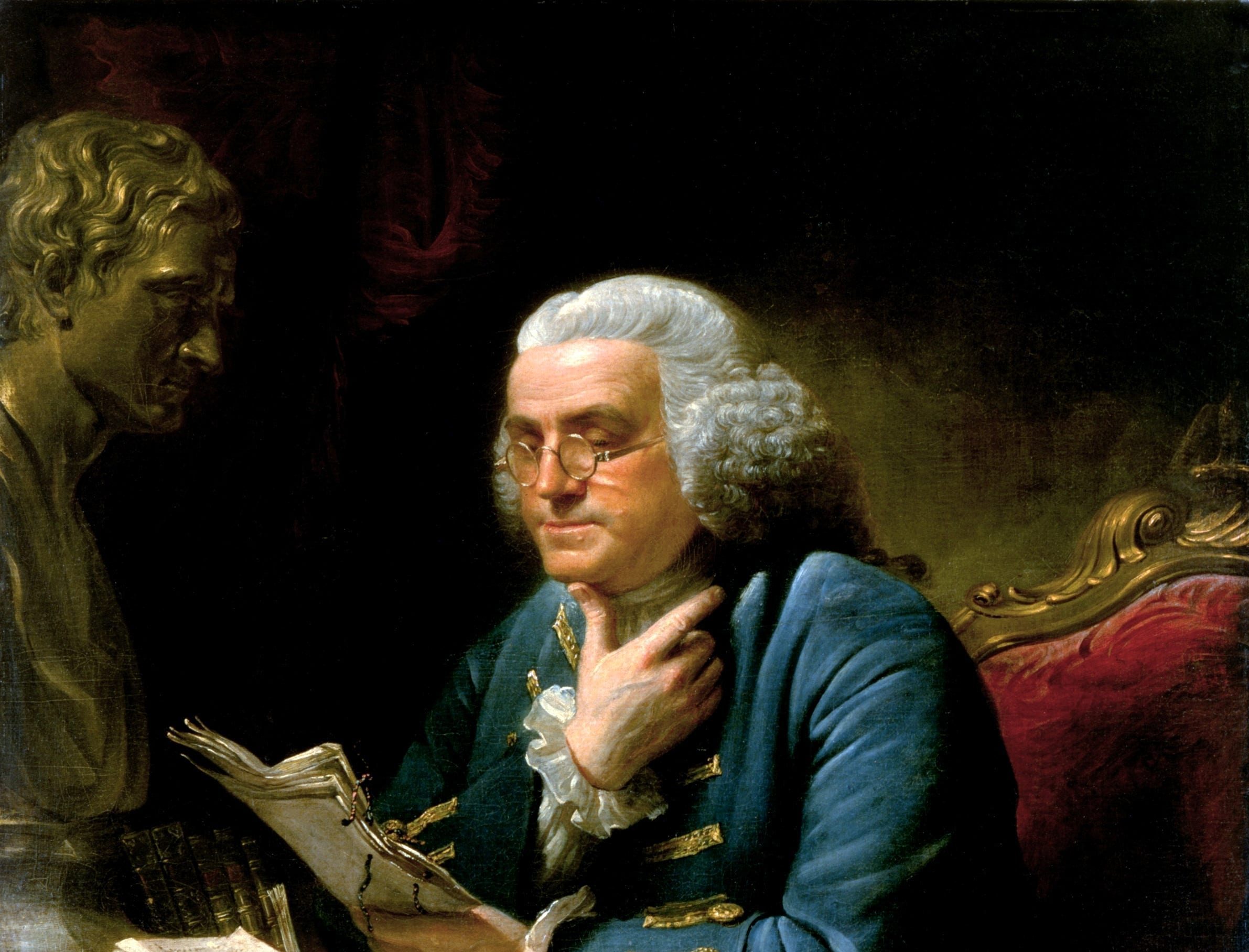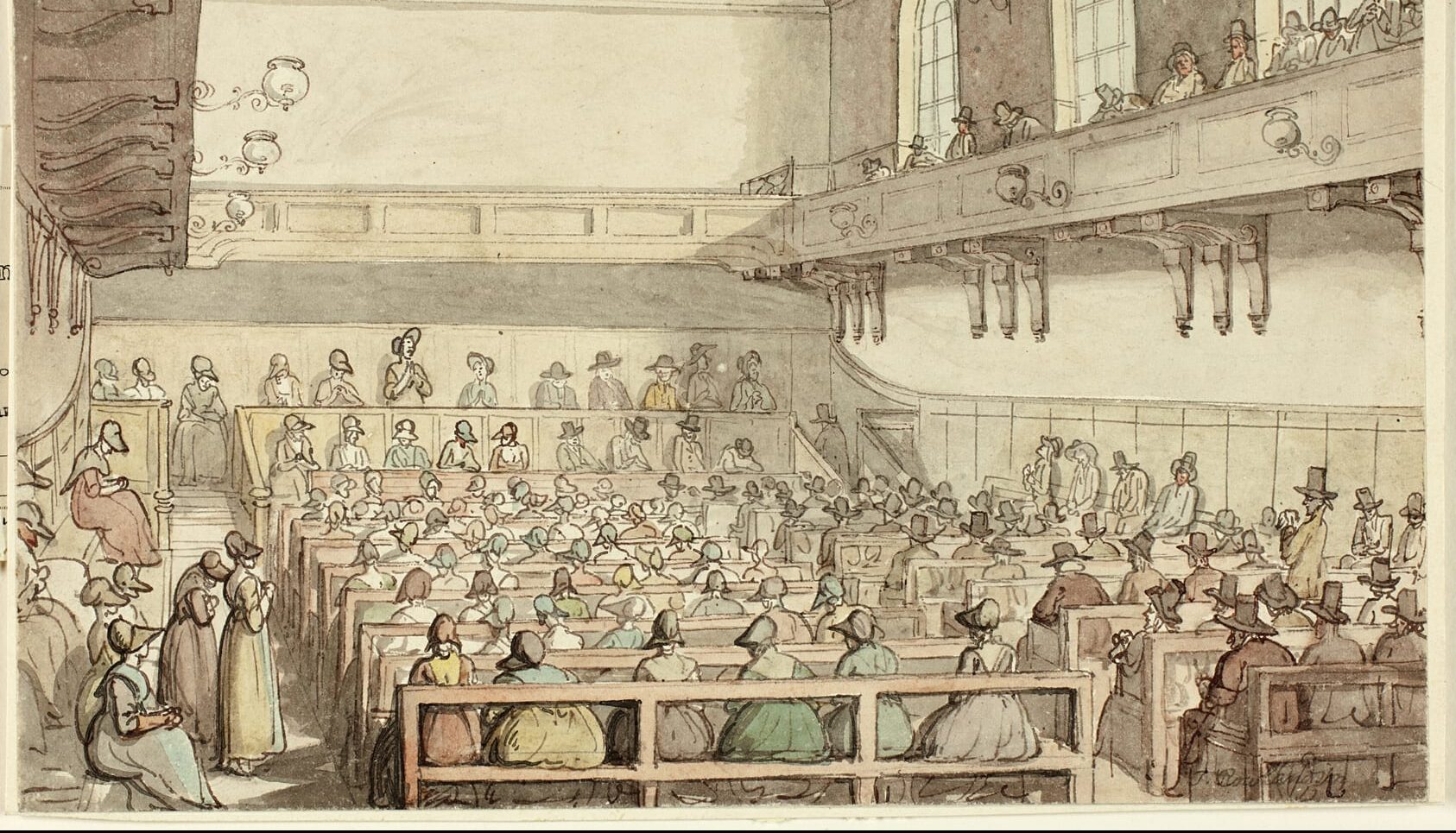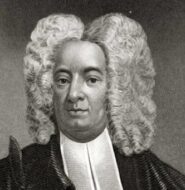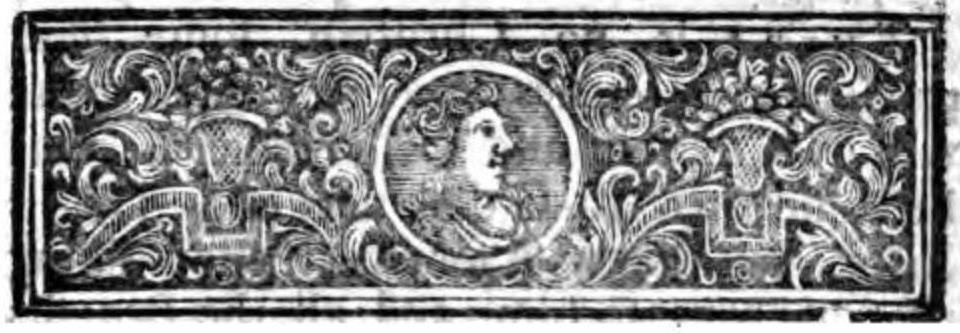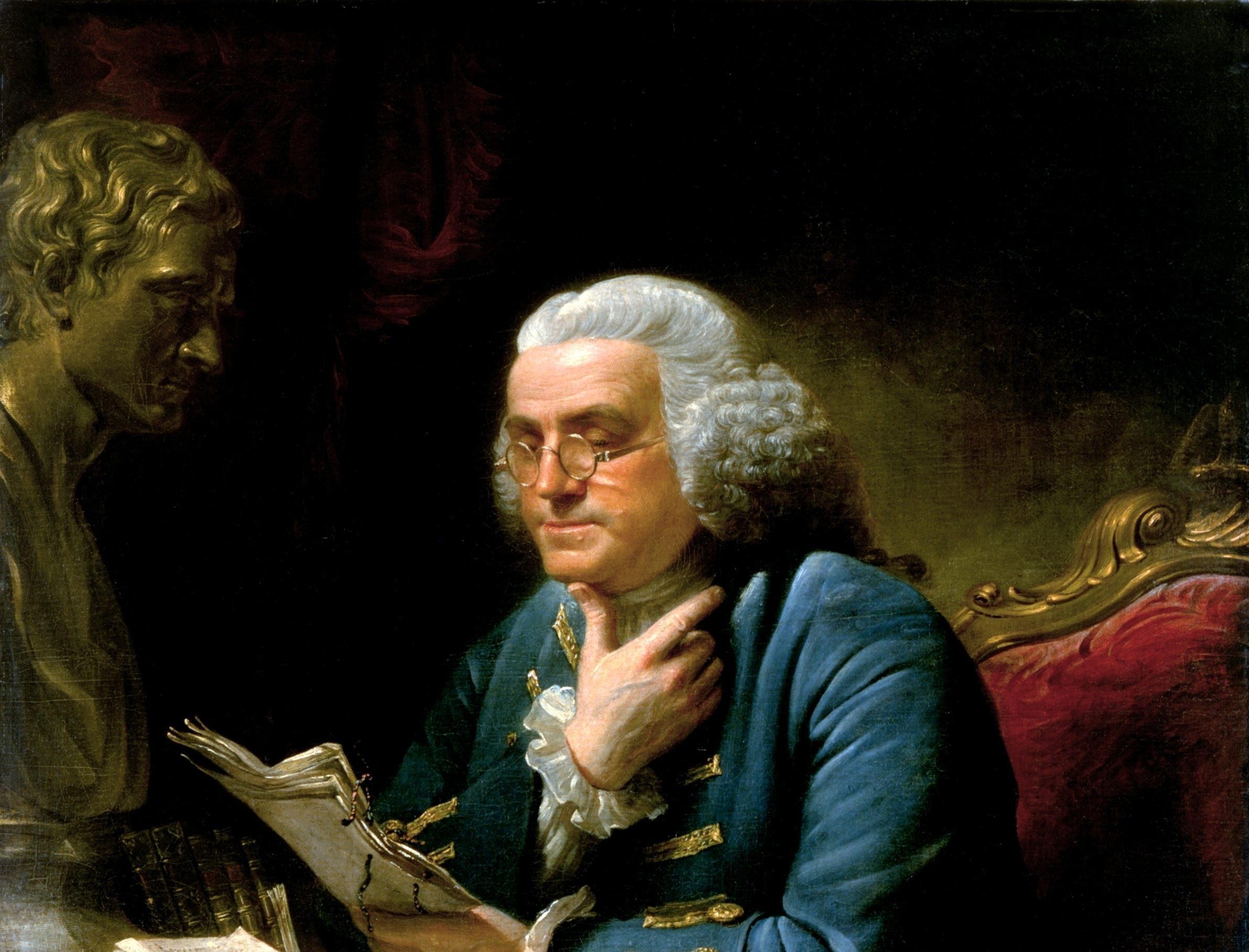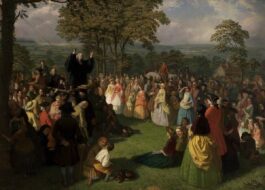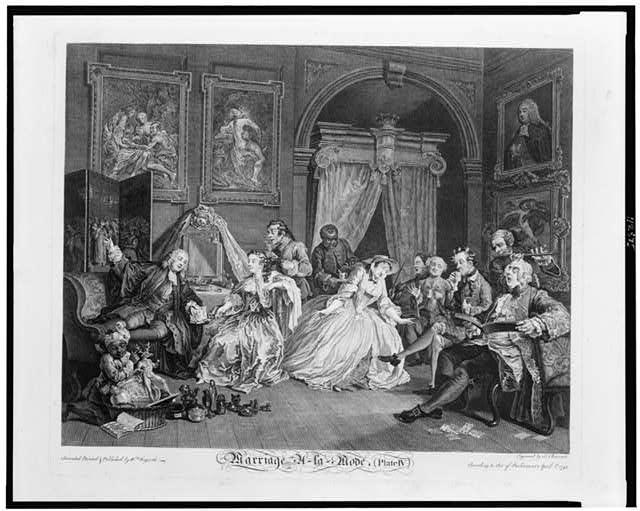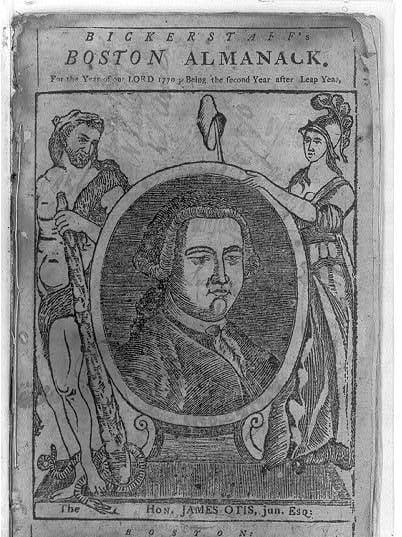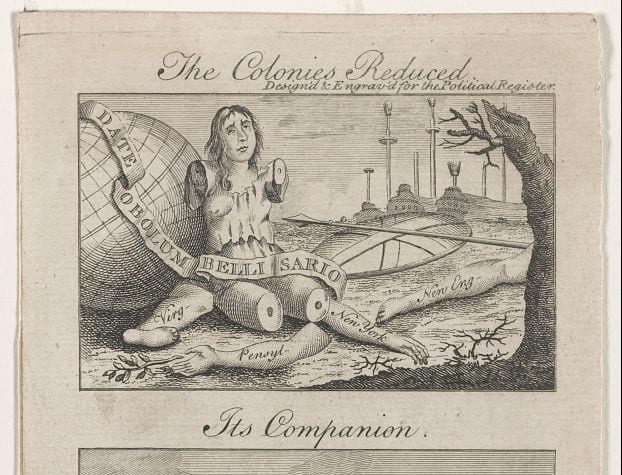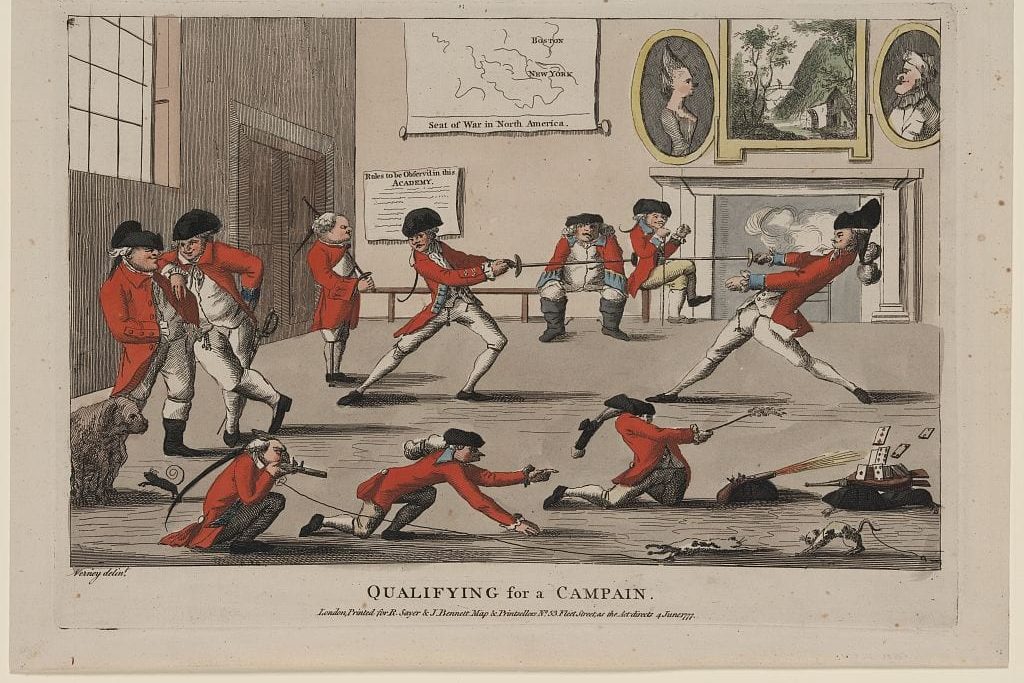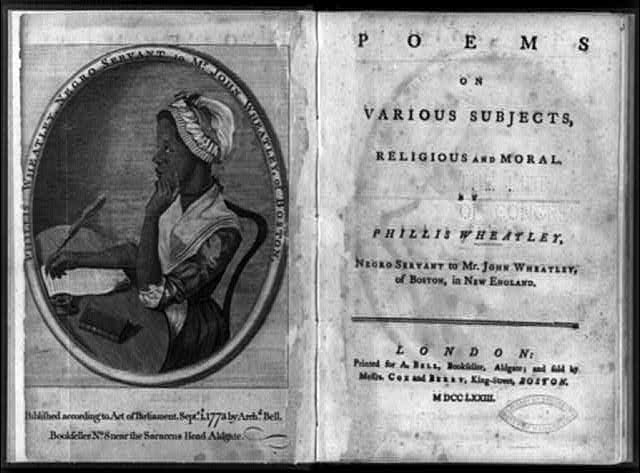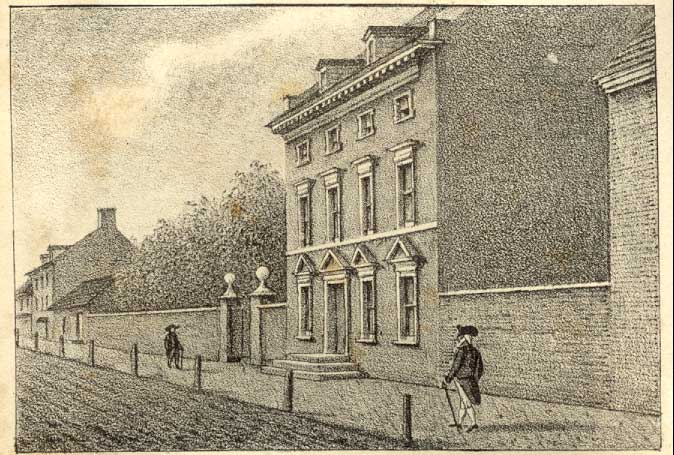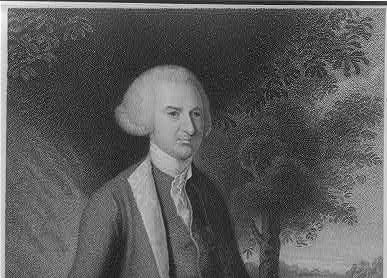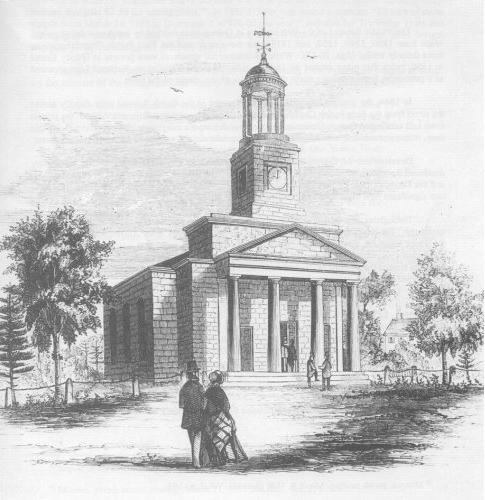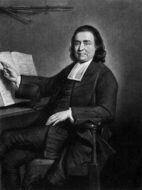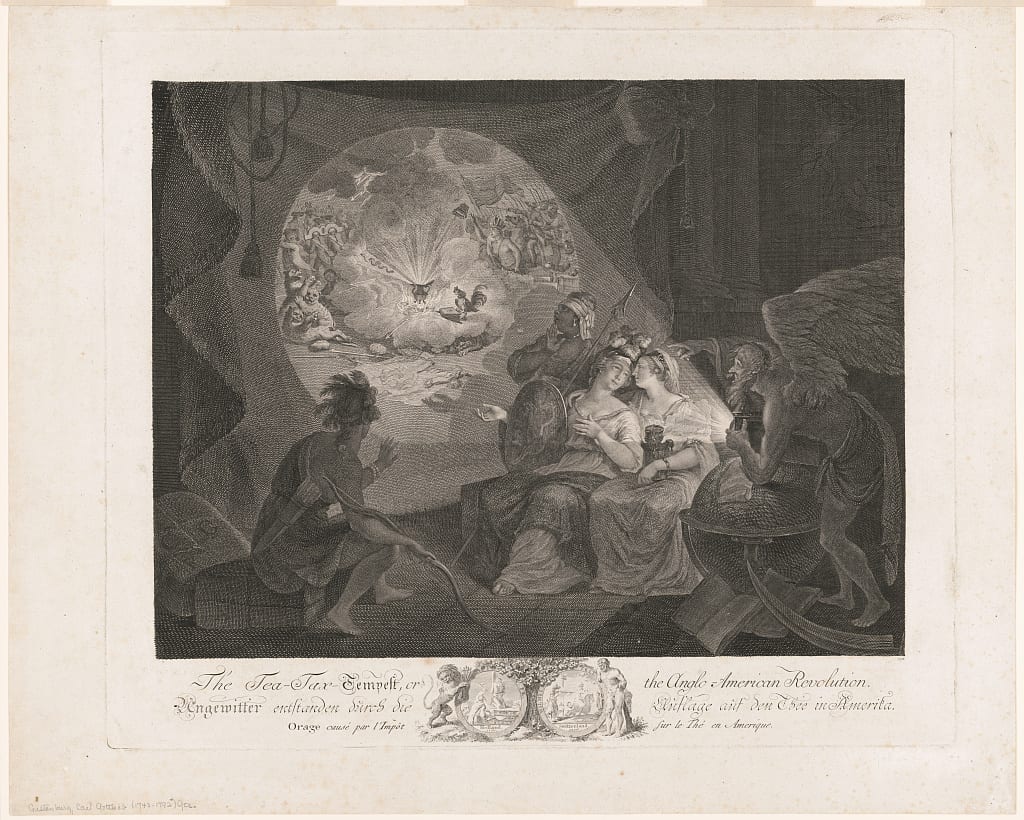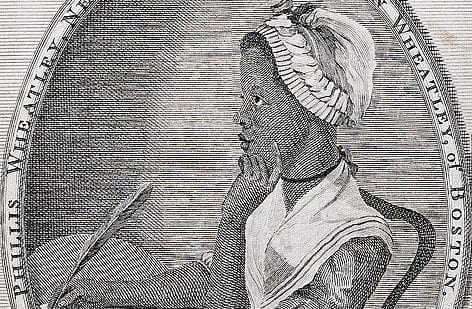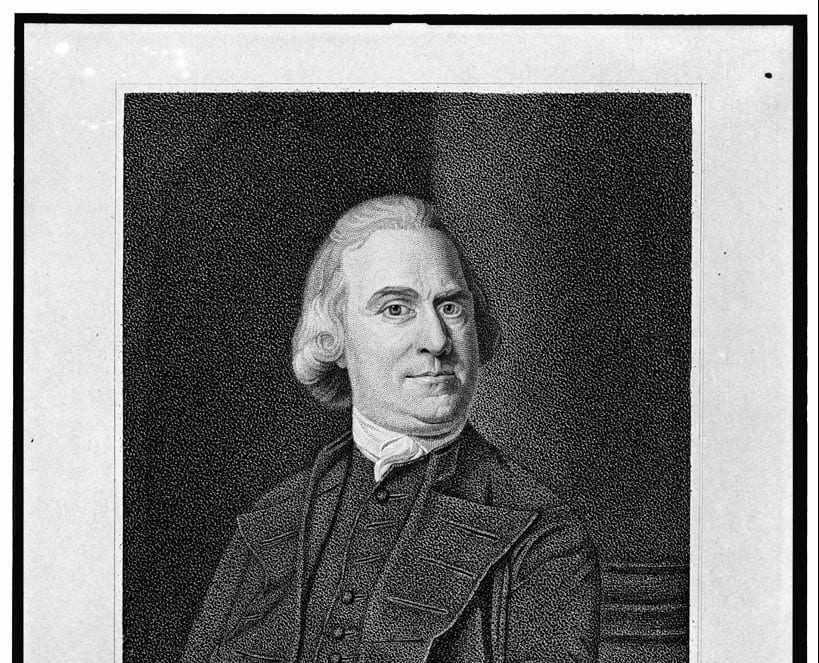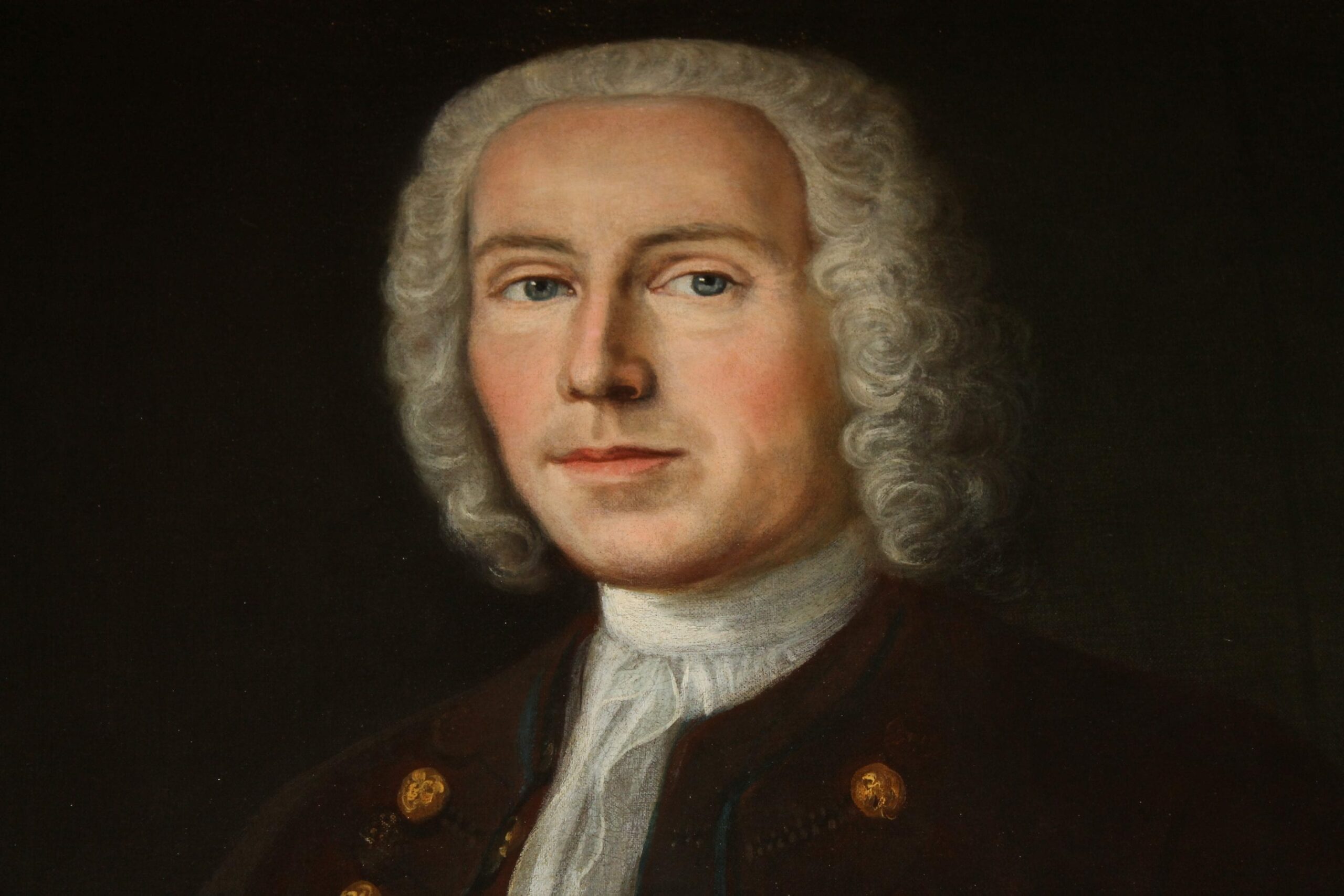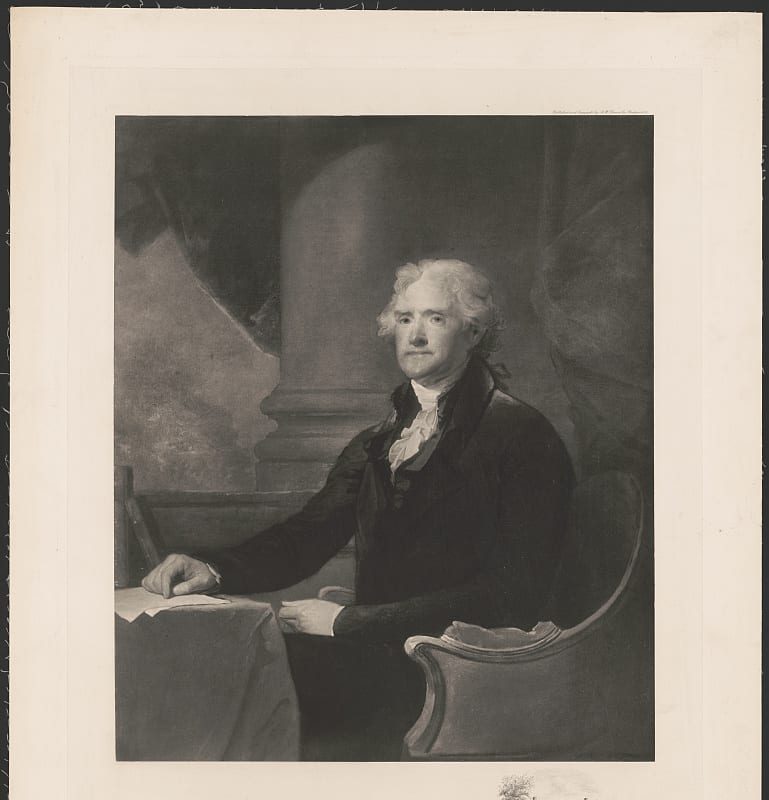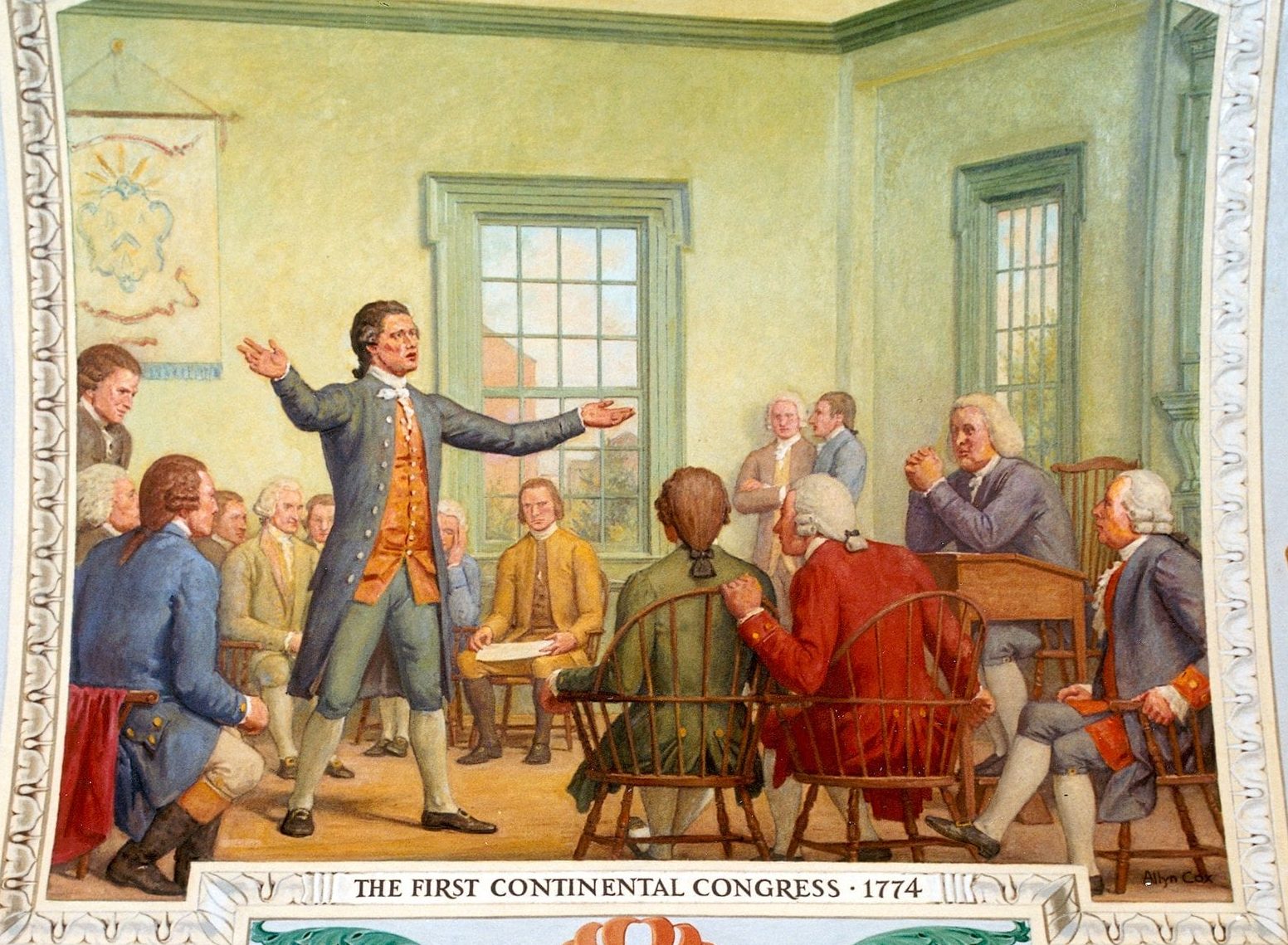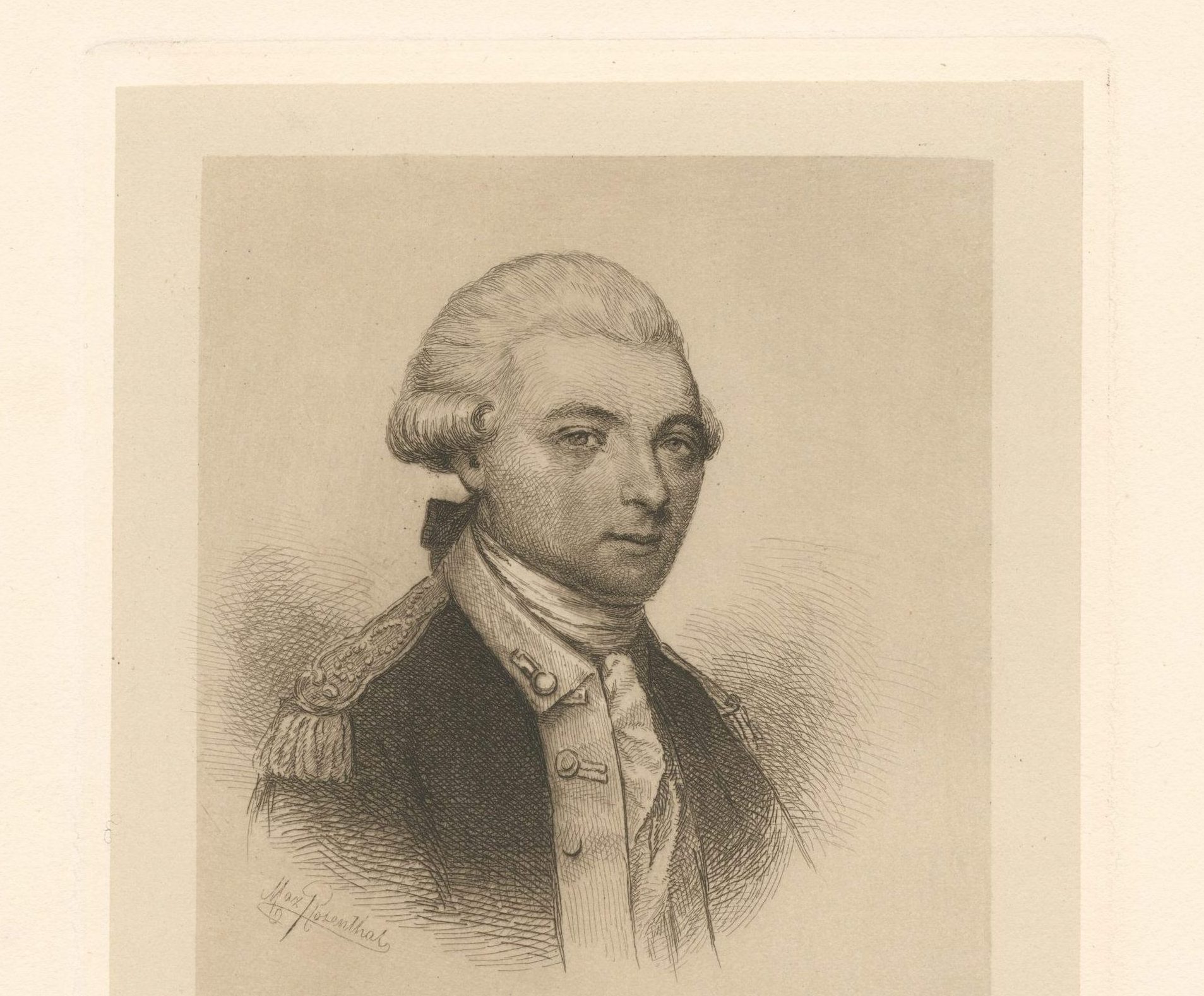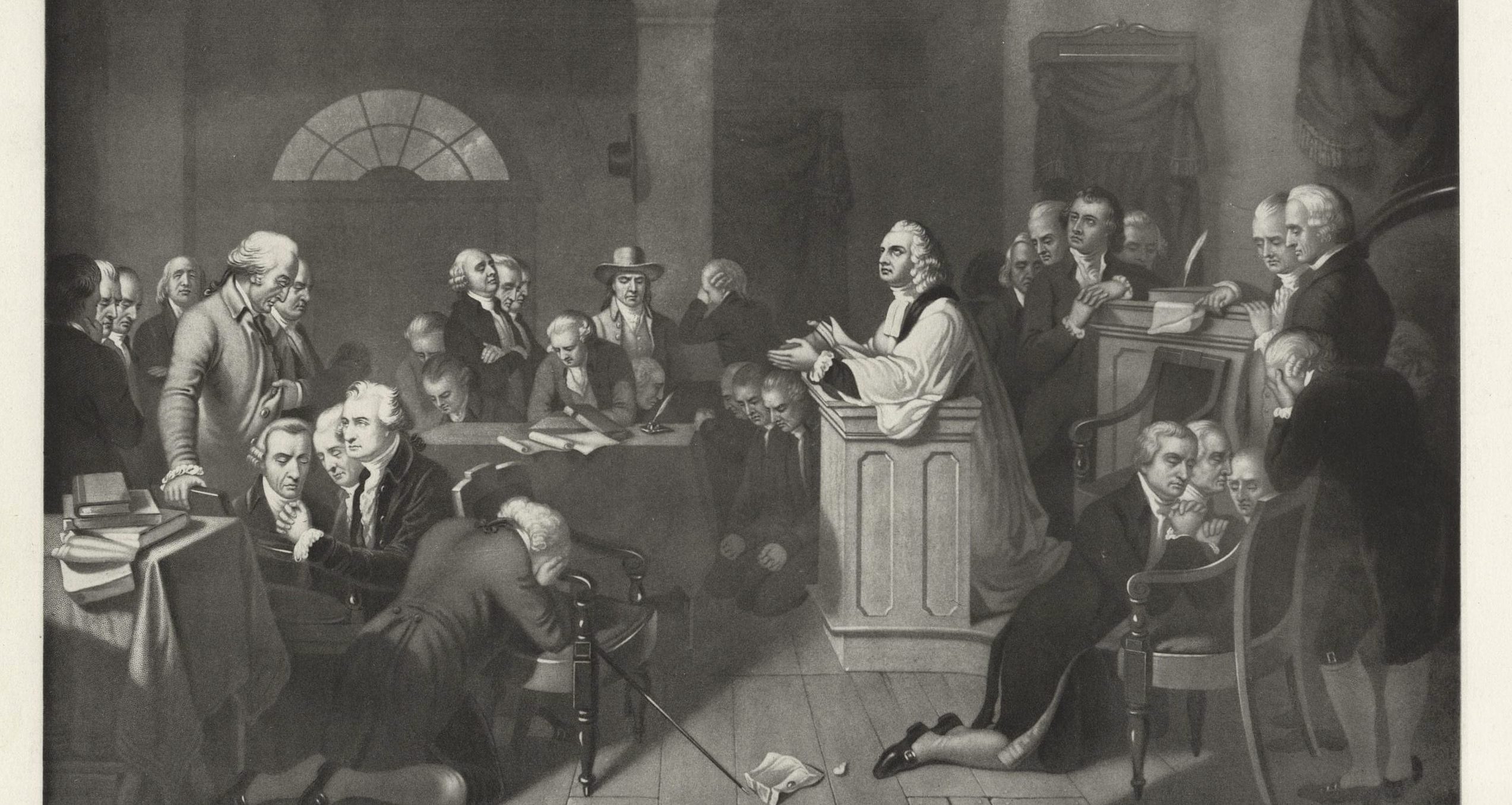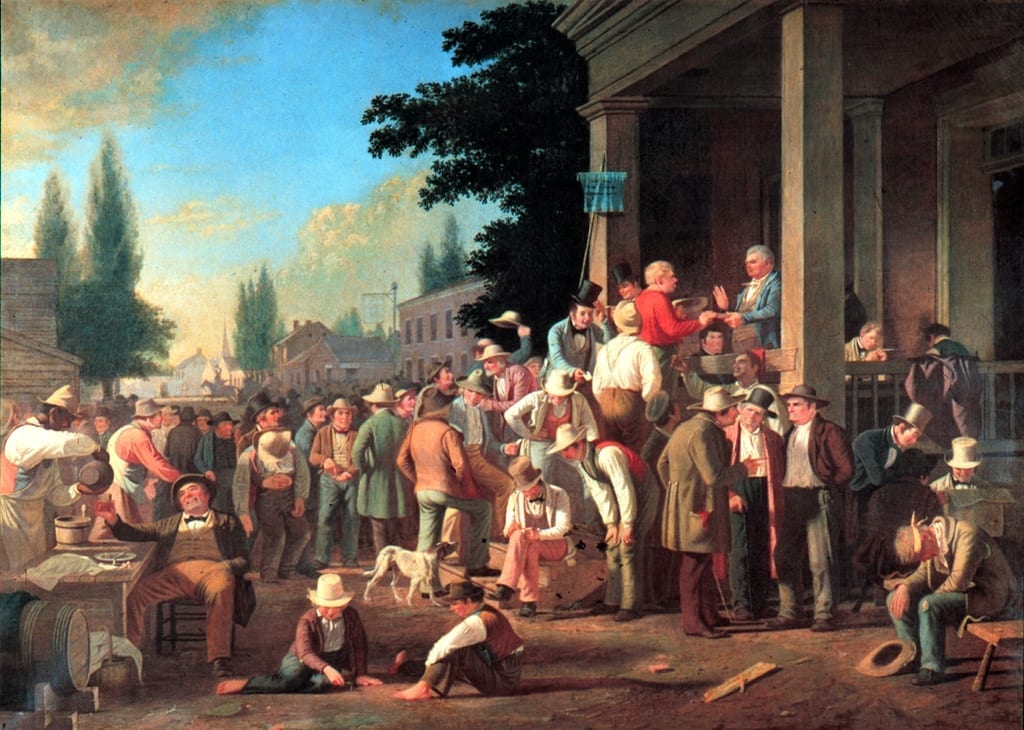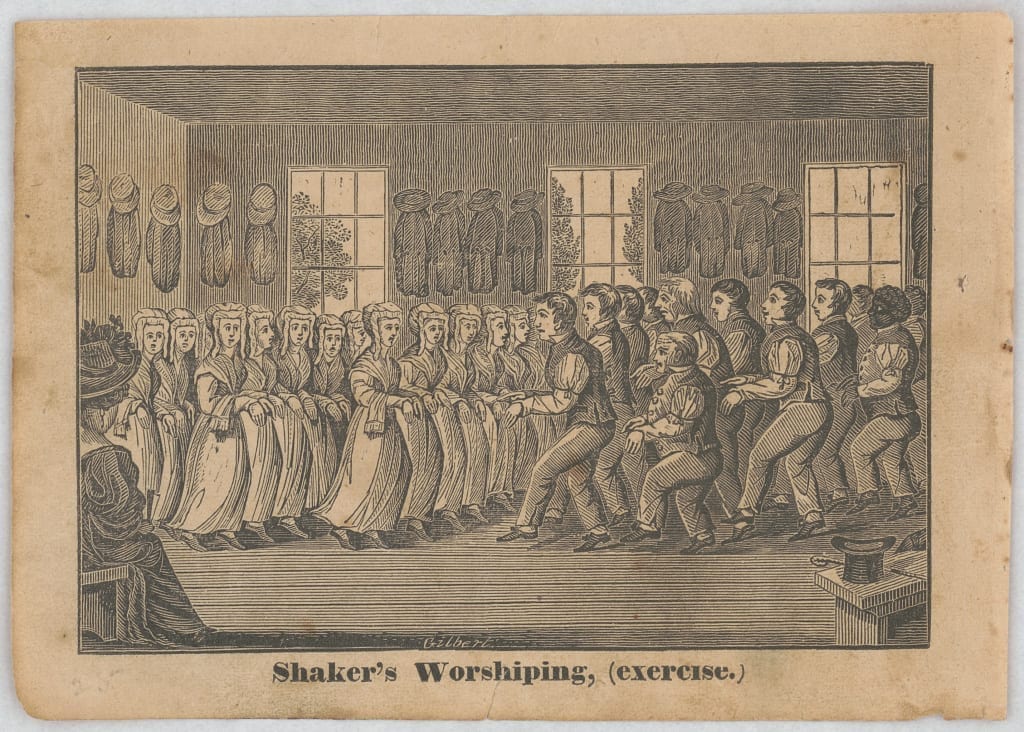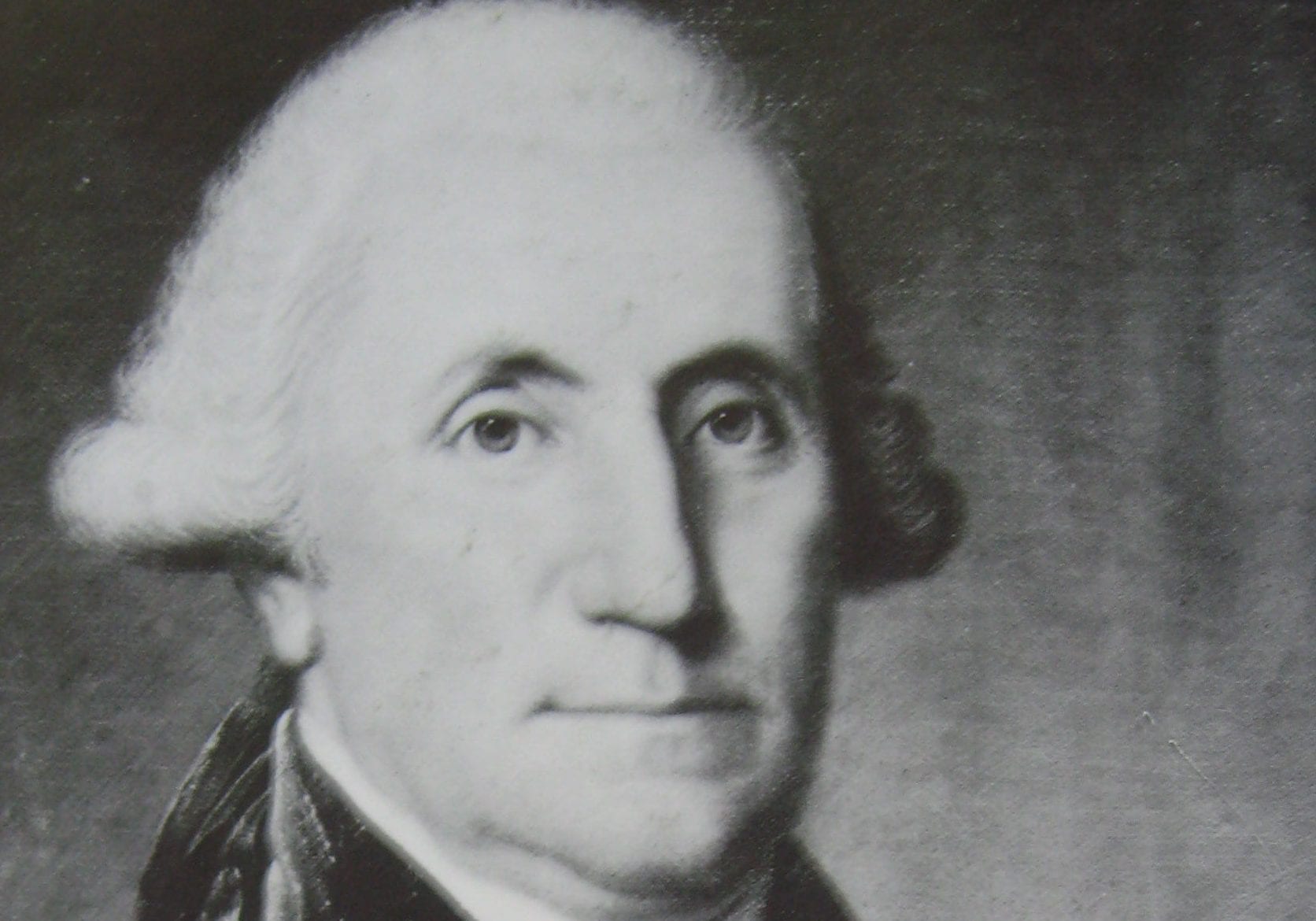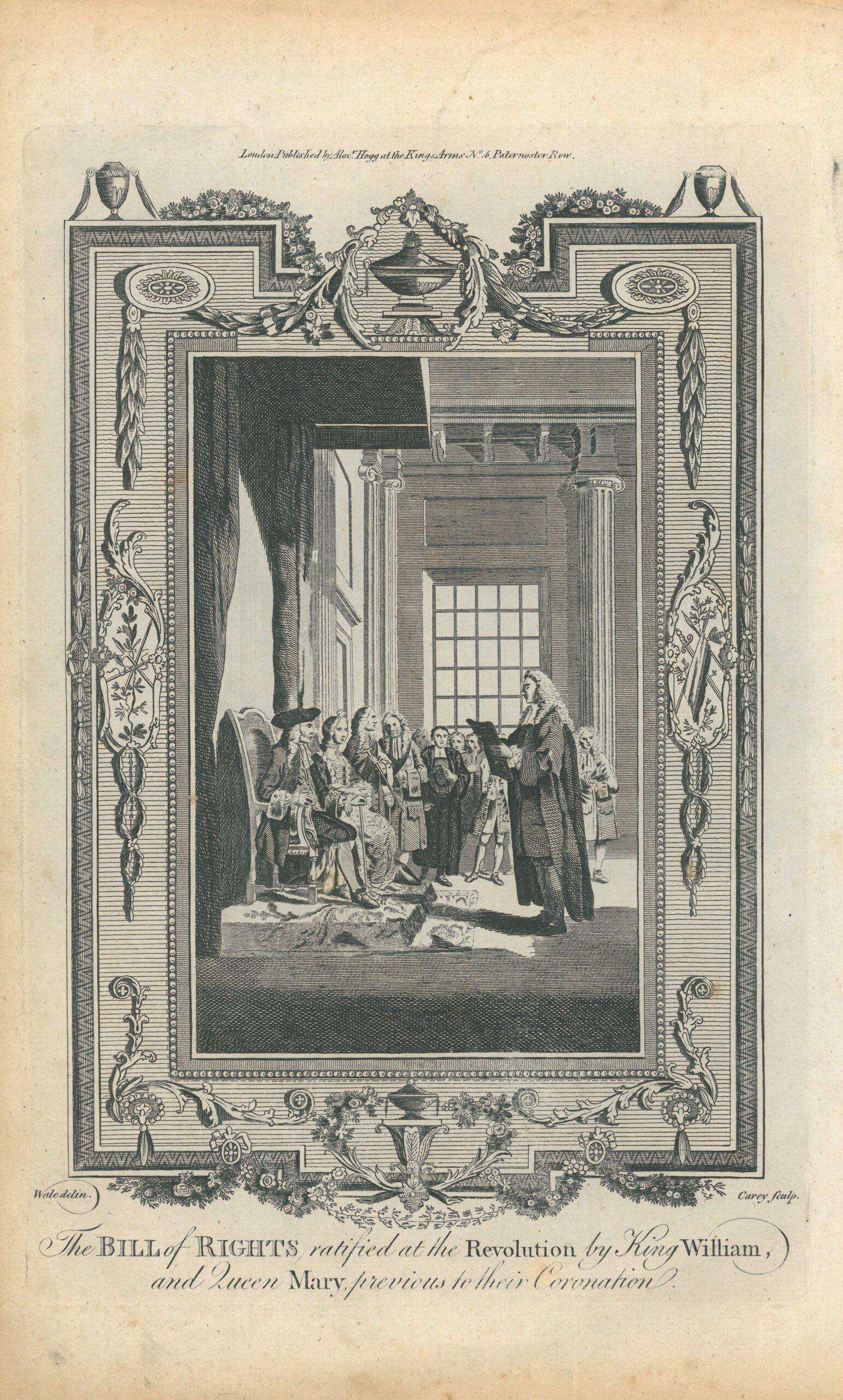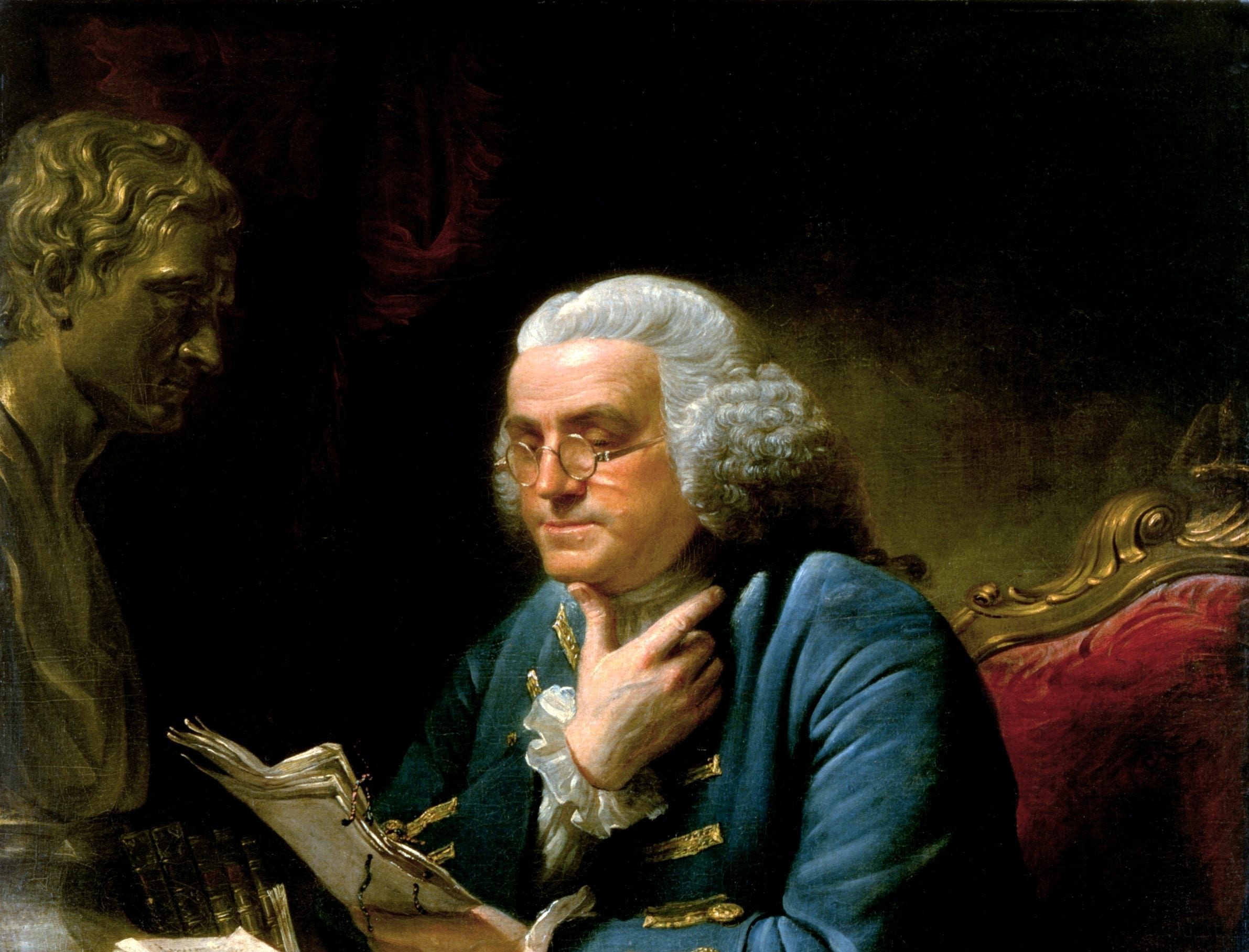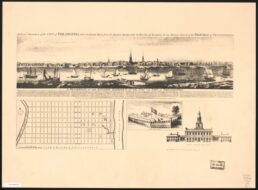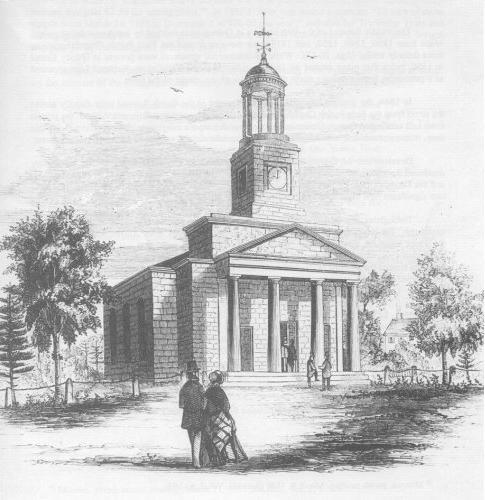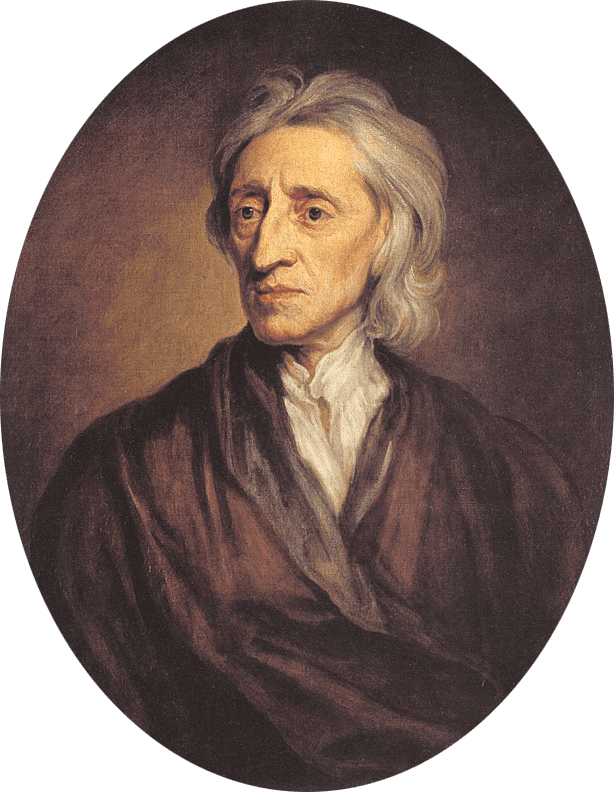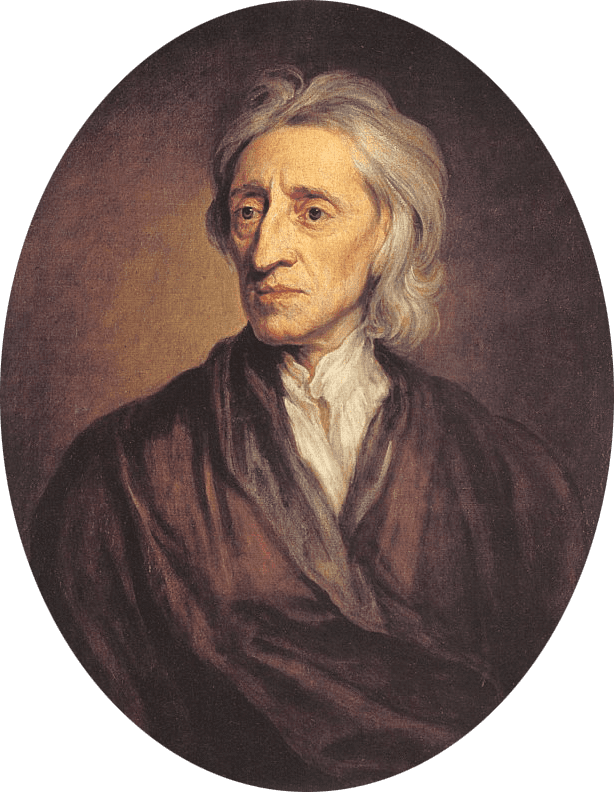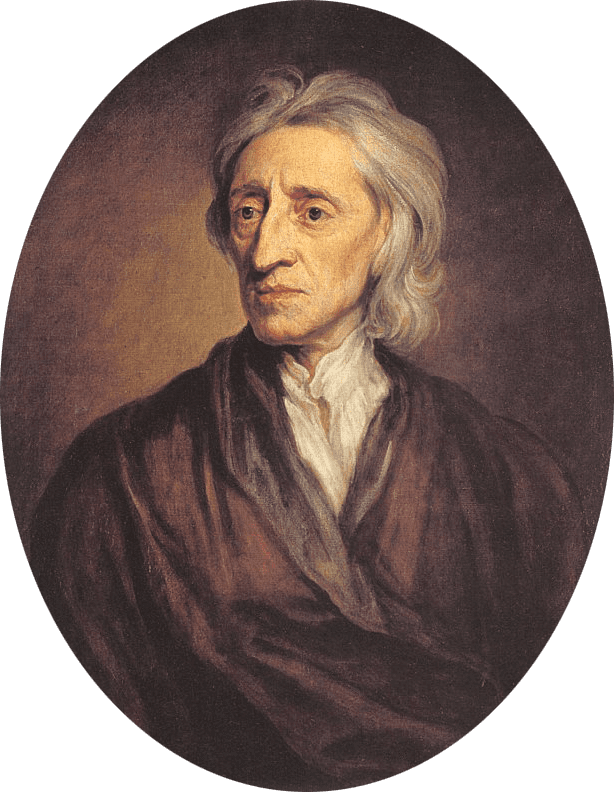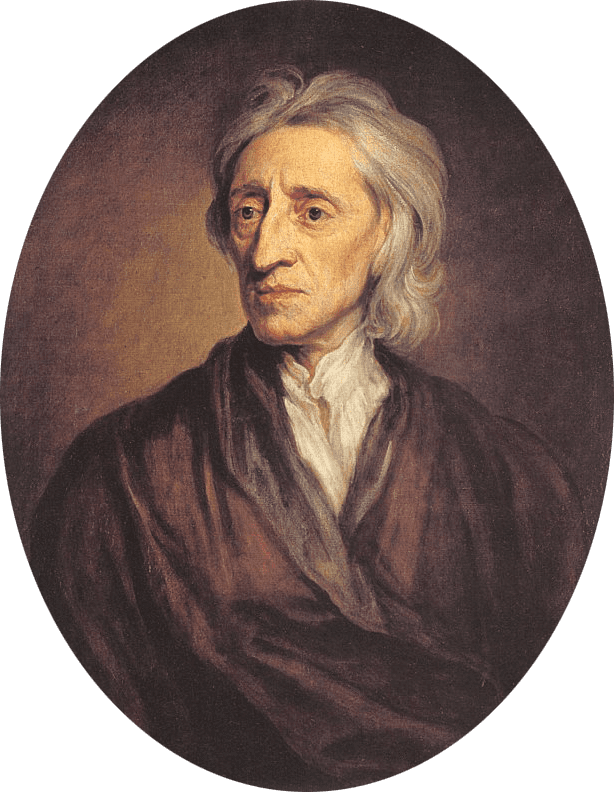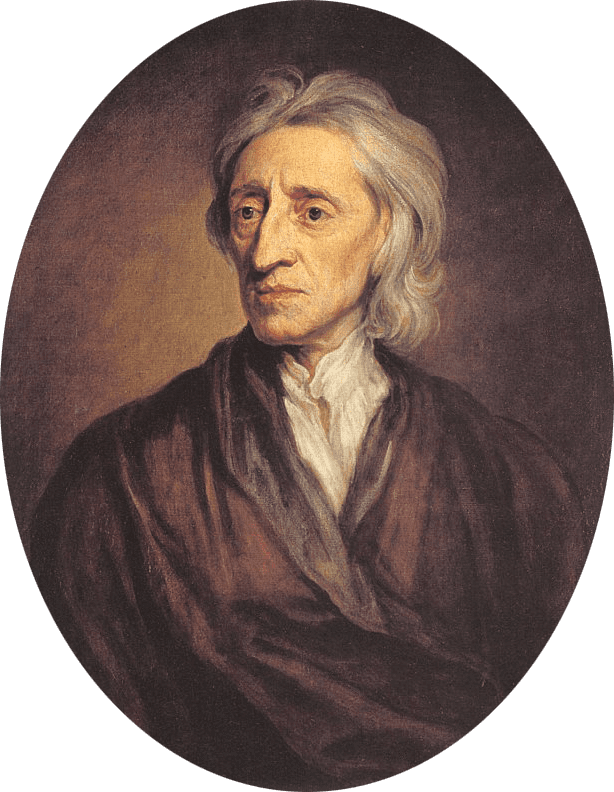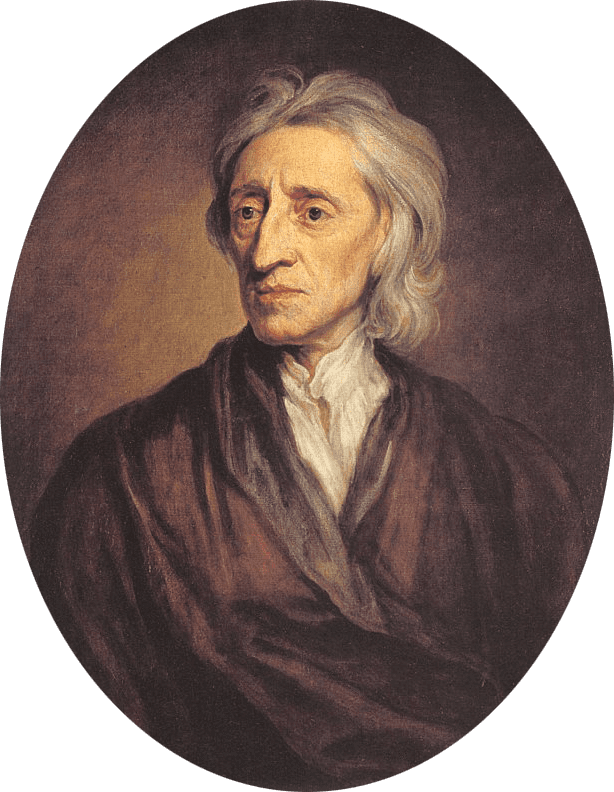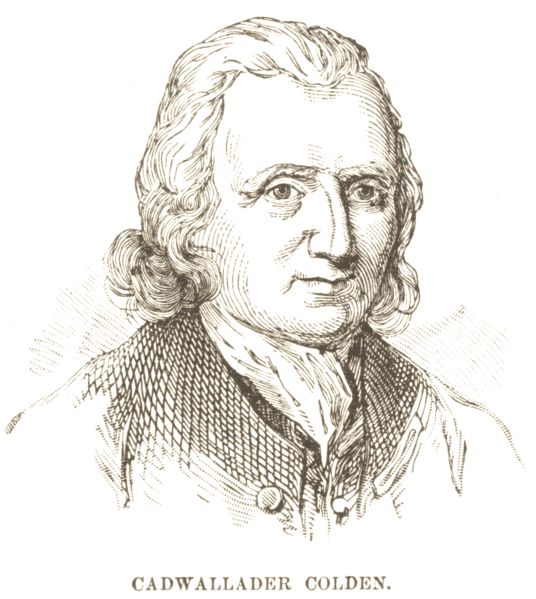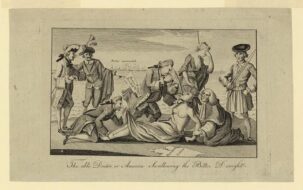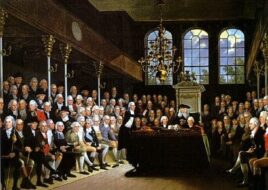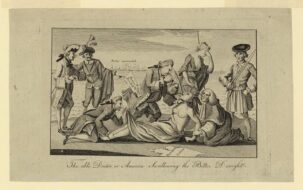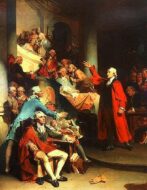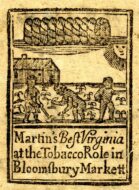

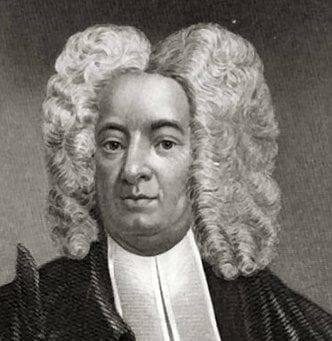
Introduction
Cotton Mather (1663-1728) and Jonathan Edwards (1703-1758) were prominent New England ministers whose shared religious background helps illuminate the tension between reason and inspiration or ‘enthusiasm’ that would eventually lead to the Great Awakening. In these two sermons preached less than twenty years apart, we see a subtle shift in emphasis on the subject of human reason and its role in religion, and, subsequently, on the relationship of the church to the broader society.
Mather is responding to what he sees as the “host of unreasonable things” threatening to undermine the good order of society; he thus begins by arguing that reason is the innate—and unique—capacity of mankind to recognize certain universal truths, whether in science or morality. From this initial proposition, he argues both that reason can provide man with certain basic religious insights, and that since to be unreasonable is to be unhuman, all men have a duty to act in accordance with reason, both in civil and religious matters. Although Mather is careful to assert that there are things that must be taken on faith as “above reason,” he nevertheless seems fully confident that his listeners can reason their way toward faith, as the final paragraph makes clear.
Edwards, on the other hand, puts much less confidence in human reason. Although he recognizes and respects man’s natural capacity for reason as both a divine gift and a means by which men can acquire knowledge of God’s nature and God’s purposes for mankind (note the subtitle, with its appeal to reason), he argues strenuously that this alone is insufficient. In much the same way that we cannot fully appreciate the sweetness of honey until we taste it, he asserts that men cannot truly experience faith until they receive the “divine light” of inspiration. Since this is an entirely internal and individual experience, it is unsurprising that Edwards only vaguely addresses the outward manifestations of faith.
A Man of Reason: A Brief ESSAY to Demonstrate That all MEN should hearken to REASON and What a World of EVIL would be prevented of the World, if Men would once come so REASONABLE
Boston: 1718
Cotton Mather
Hear now my REASONING.— Job 13:6
…
They were wise men, and they were good men, whom the afflicted Job has to do withal; and they were men of reason too. But it was a very sensible part of his affliction that they dealt unreasonably with him. He does accordingly take pains to convince them of their unreasonableness. His discourse is introduced with this preface; “Hear now my Reasoning.” The word signifies a reasonable demonstration; such a demonstration as ought to be brought by a man, that would hope[fully] convince another man; an irrefragable, an unanswerable argument. . . . I conclude, every man, will pay so much homage to reason, as to grant me my doctrine, with which I do now again come upon you;
That he that would approve himself a Reasonable Man, must hearken to Reason.
That we may prosecute this doctrine to some effect, we may first settle the matter, in two self-evident propositions.
1. There is a reasonable spirit in man, and the inspiration of the Almighty has given him an understanding; and there are certain principles of reason, which every man does naturally and ordinarily bring with him into the world.
There is in every man an admirable spirit. In that spirit, there is a faculty called reason. ’Tis that faculty which is called the Spirit of Man, which is the Candle of the Lord (Prov. 20:27). By the light of this precious and wondrous candle it is, that we discern the connection and relation of things to one another. There are certain ideas imprinted on the Spirit of Man, by the GOD, who Forms the Spirit of Man within him. It is an Irrational, as well as an unscriptural opinion, that we have no ideas in our minds, but what are introduced from abroad, by observation. There are a rich clutter of ideas which we are born withal, and which are only awakened, and brought into exercise by observation. The ideas which I mean, are those, which we call, the principles of reason. According to these principles, the reason of men, does pronounce on things that are plainly brought unto it. Reason proceeds according to these common and innate principles, in passing a judgment on what is plainly laid before it. Reason judges of what is mathematically true or false. But this is not all; it judges as often, and as clearly, what is morally good, or what is morally evil; what is right and what is wrong, in morality too. Indeed, there are very many, who do not actually discern, what is morally good or evil, right or wrong; but so there are many, who do not actually discern mathematical truth from falsehood.
…
There is a foolish and cursed opinion, which has taken root, in a debauched generation of men; who pretend indeed that they magnify reason…but they go really to extinguish reason, and chase it out of the world. The opinion is, that nothing is good or evil, right or wrong, antecedent unto the compact of humane society upon it: That all the difference between good and evil, right and wrong, lies in the agreement of humane society thereupon. These wicked Sons of the Leviathan do confute themselves. For they themselves must own, that antecedently unto all compact, it is good and right, that a compact should be kept; it is evil and wrong to break a compact, else they say nothing…. In brief; there is an eternal difference between good and evil; between right and wrong. ’Tis constituted by GOD: GOD has inwrought those principles in the reasonable spirit of man, which will necessitate him to acknowledge this difference, when it is evidently set before him.
II.There is all possible reason (excuse the pleonasm of the expression) why every man should hearken to reason, or do nothing against the principles of reason. There are many principles of reason; But, I take this to be the very first of them; that a man ought to act according to them….
…
First; The man who does not hearken to reason, does rebel against the glorious GOD, which has placed man under the guidance of reason…. We have to do with GOD, as often as we have right reason calling upon us…. And I will now say, we never transgress any law of reason, but we do at the same time, transgress the law of GOD…. The voice of reason, is the voice of GOD. GOD speaks, as often as reason and wisdom utters its voice. GOD who has furnished us with reason, has required us, to be obedient unto the dictates of reason. To man, He says, Let reason be thy Guide; never go against thy well-enlightened reason. We have received this order from GOD our maker: Show your selves men (Isaiah 46:8). That is to say, act reasonably; do like reasonable men….
Secondly. The man who does not hearken to reason, is very unthankful to GOD, for endowing, enriching, ennobling of him with reason…. Reason, ’tis a noble thing; It makes man a noble creature. It is the glory of man; it is the glorious Image of GOD upon him. Reason, ’tis that wherein we excel the beasts of the field. Thou, reason, dwellest with prudence; and thou findest out the knowledge of witty inventions; counsel is thine, and sound wisdom and strength. By thee, man is able to rule over other men, as well as over the beasts of the earth: Thou art the sword in the hand of all the judges of the Earth… . To do unreasonably is to do most unthankfully. When a Man will not hearken to reason, he despises the particular advantage of mankind….
Thirdly. The Man who does not hearken to Reason, does the part of a brute, yea, he does worse than a brute, that is destitute of Reason. We read of brutish men; and of those who are as brute beasts (Jude 10): Men, who are far as they can, quite the order of men, and rank themselves with brutes[1]….
Fourthly, There is a conscience in the case. The man that will not hearken to reason, goes against the light of his conscience. There is a conscience in man, which commends unto him, what is reasonable; which condemns him to suffer the vengeance of GOD, if he do that which is not reasonable. We read, Rom. 2:15: There is the work of the law written in their hearts, their conscience also bearing witness. What is conscience, but, reason submitting to the judgment of GOD? When a man will not hearken to reason, he is one of those, who (Job 24:13) rebel against the light. The conscience of man, forewarns him, and assures him, of a punishment reserved in another world….
The reason of my speaking these things is, that I may come out the better armed for the expedition which I am now to make, against a host of unreasonable things, which are every day doing among us…. There are certain maxims of reason, which I am now to set before you. But they shall be every one of them, glorious maxims of religion….
First. Hear now my reasoning: We are to distinguish between what is against reason and what is above reason. We must not call a thing unreasonable, merely because unto us, it is incomprehensible. We must not so hearken to reason, as to make an idol of reason: or to admit nothing at a revelation from GOD, but what we can fathom, with our little reason.…read, “Canst thou by searching find out GOD? Canst thou find out the Almighty unto perfection?” (Job. 11:7). Even so; canst thou by searching find out the mysteries in the religion of GOD? Canst thou find out the great mysteries of godliness unto perfection? It must not be pretended unto!
…
This reason will do. It will demonstrate it unto us, that the Scriptures are the Word of GOD, & the Book of Truth. If you will hearken to reason, you must confess, that writings full of such holiness, and wisdom, and grandeur, and exquisite contrivance and Heavenly Intention, as compose our Bible, must needs be of divine original. But there are many things in the Scriptures which are, above reason. Our shallow reason must not be set up, as the measure of what is to be received, as a faithful saying, and worthy of all acceptation. Faith, faith is here to interpose. Reason, stand thou by, with an humble reverence, an awful silence. In the Scriptures, there is nothing against reason, tho’ there be some things above reason.
It must also be remembered, that by our fall from GOD, the strength of reason is much impaired in us; the eye of reason is darkened, is depraved, is miserably wounded. We are prone to take some things, as according to reason, which are not so. If then there be any thing prescribed in the Sacred Scriptures, which our carnal reason, may be ready to cavil at, say not, I can’t see reason for this…. But if there be Scripture for any thing, lay this down for a maxim, there is reason for it. Perhaps we can’t see the reason: but reason says, the Scripture is a revelation from GOD: And reason says, what GOD has revealed must be reasonable. But then also, vain man, do not imagine, that thy light within, or the light of reason, is a sufficient guide without the Scripture, to bring thee unto salvation: much more, to make a Christ, and a God of that light, it is a dangerous idolatry. We must hearken to right reason: but beware, lest we ascribe too much, to our own broken faculties.
Secondly. Hear now my reasoning, there is a Golden Rule of reason, which well-applied, would wonderfully rectify the conversation of mankind: Even that rule, for a man to do unto others, as he would own it reasonable for others to do unto him…. Yea; but it is a rule engraved by the hand of GOD, upon the reason of mankind. There is no reasonable man, but what will fall down before this rule, and say, ’tis an excellent rule! Happy, happy would the world be, if this rule might bear rule in the world. You may as easily bring a man to own this rule, as to own that three and four make seven. And the man that will say, ’tis unjust for another man to do so and so unto me, but it is not unjust…to do the same unto him,… prove himself as great a sot, as he that shall say, three and four make seven, but four and three won’t do so….
Thirdly, Hear now my reasoning. It stands to reason, that…. If a thing be decried as a folly, or a baseness, in a man of another party, ’tis but reason, that it should be decried in one of our own party too…. If sinners of an inferior quality must be punished for their misdemeanors, ’tis but reason, that the bigger sort of sinners also should not pass unpunished. There is no reason, for laws to be cobwebs, only to catch the little flies, and let the greater birds break through them.
Fourthly. Hear now my reasoning. It is but reason, that a man should not be condemned, without any hearing of what may be pleaded for him…. It is not the manner of the reasonable, to condemn a man as a criminal, without first hearing, or knowing, what may be said in his defense. If this one demand of reason might be hearkened unto, what would become of the defamations, with which we commonly keep wounding one another!
Fifthly. Hear now my reasoning: Methinks, ’tis no more than reason that men should curb their passion, and not let that usurp the place of reason. If men are of a boisterous, raging, raving (I will not say, temper, but rather) distemper, there is little of reason to be expected in their doings. The bridle of reason is cast off, and passion, headstrong passion, will precipitate them, into very unreasonable exorbitances and enormities….
Lastly. Behold, an engine, to batter all impiety! Hear now my reasoning. It is from a prodigious hardness of heart, if men will not be reasoned out of all impiety. Of all ungodly men, we read, Psalm 14:4: They have no knowledge; they act, as if they had no reason in them. We may strike all impiety, with the lightning of reason as well as with the thunder of Scripture…. There are certain principles of religion, which must be acknowledged by the reason of all men, as much as any principles of the Mathematics. A reasonable creature, you may compel him to acknowledge, that two and two make four; or, that a square is double to a triangle, of equal base and height. The proportions in Arithmetic and Geometry, he must needs acknowledge them. You may as easily compel him, to acknowledge, that there is a GOD, who must be adored and obeyed: you may compel him, to acknowledge, that he ought not to offer unto his neighbor, anything which if he himself were in the state of that neighbor, he would count an injury. Now, upon transgressions on these two points, there turns all the wickedness of the world.
I must then arraign all wickedness before the bar of reason…. My hearers; you are dying; you are dying; you will die speedily; you may die suddenly…. You make ready for death, by repenting of all sin, and renouncing all your sinful vanities; by embracing of the Great GOD, for your GOD, His CHRIST for your complete and only Redeemer; by resolving upon a life of serious PIETY. Till you are thus made ready, you are every day in a danger, wherein a reasonable man would not sleep a night, for a thousand worlds! Awake, O Reason, awake! And Oh! That men would reasonably consider, that they are a dying, and what they would choose and wish, when they come to die…. Hear now my reasoning. Something should be done about the matter, effectually done, and immediately done. I beseech you, delay not the doing of it….
A Divine and Supernatural Light, Immediately Imparted to the Soul by the Spirit of God, Shown to be Both Scriptural and Rational Doctrine
Boston, 1734
Jonathan Edwards
And Jesus answered and said unto him, “Blessed art thou, Simon Barjona: for flesh and blood hath not revealed it unto thee, but my Father which is in heaven.”
— Matthew 16:17
CHRIST says these words to Peter upon occasion of his professing his faith in him as the Son of God. Our Lord was inquiring of his disciples, who men said he was…. Simon Peter, whom we find always zealous and forward, was the first to answer: he readily replied to the question, Thou art Christ, the Son of the living God.
Upon this occasion, Christ says as he does to him, and of him in the text: in which we may observe,
- That Peter is pronounced blessed on this account. Blessed art thou—“Thou art a happy man, that thou art not ignorant of this, that I am Christ, the Son of the living God…. Happy art thou, that art so distinguished as to know the truth in this matter.”
- The evidence of this his happiness declared; , that God, and he only, had revealed itto him. This is an evidence of his being blessed….
What had passed in the preceding discourse naturally occasioned Christ to observe this; because the disciples had been telling how others did not know him, but were generally mistaken about him, and divided and confounded in their opinions of him: but Peter had declared his assured faith, that he was the Son of God. Now it was natural to observe, how it was not flesh and blood that had revealed it to him, but God: for if this knowledge were dependent on natural causes or means, how came it to pass that they, a company of poor fishermen, illiterate men, and persons of low education, attained to the knowledge of the truth; while the Scribes and Pharisees, men of vastly higher advantages, and greater knowledge and sagacity in other matters, remained in ignorance? This could be owing only to the gracious distinguishing influence and revelation of the Spirit of God. Hence, what I would make the subject of my present discourse from these words, is this:
DOCTRINE
That there is such a thing as a spiritual and divine light immediately imparted to the soul by God, of a different nature from any that is obtained by natural means.
And on this subject I would
- Show what this divine light is.
- How it is given immediately by God, and not obtained by natural means.
- Show the truth of the doctrine.
And then conclude with a brief improvement.[1]
- I would show what this spiritual and divine light is. And in order to it, would show, First, In a few things what it is not. And here,
- Those convictions that natural men may have of their sin and misery, is not this spiritual and divine light. Men in a natural condition may have convictions of the guilt that lies upon them, and of the anger of God, and their danger of divine vengeance…. Conscience is a principle natural to men; and the work that it doth naturally, or of itself, is to give an apprehension of right and wrong, and to suggest to the mind the relation that there is between right and wrong, and a retribution….
- This spiritual and divine light does not consist in any impression made upon the imagination. It is no impression upon the mind, as though one saw any thing with the bodily eyes: it is no imagination or idea of an outward light or glory, or any beauty of form or countenance, or a visible luster or brightness of any object….
- This spiritual light is not the suggesting of any new truths or propositions not contained in the word of God…. It reveals no new doctrine, it suggests no new proposition to the mind, it teaches no new thing of God, or Christ, or another world, not taught in the Bible, but only gives a due apprehension of those things that are taught in the word of God.
- ’Tis not every affecting view that men have of the things of religion that is this spiritual and divine light. Men by mere principles of nature are capable of being affected with things that have a special relation to religion as well as other things….
But I proceed to show, Secondly, Positively what this spiritual and divine light is. And it may be thus described: a true sense of the divine excellency of the things revealed in the word of God, and a conviction of the truth and reality of them thence arising…. A spiritual and saving conviction of the truth and reality of these things, arises from such a sight of their divine excellency and glory; so that this conviction of their truth is an effect and natural consequence of this sight of their divine glory.
There is therefore in this spiritual light
- A true sense of the divine and superlative excellency of the things of religion; a real sense of the excellency of God and Jesus Christ, and of the work of redemption, and the ways and works of God revealed in the gospel…. He that is spiritually enlightened truly apprehends and sees it, or has a sense of it. He does not merely rationally believe that God is glorious, but he has a sense of the gloriousness of God in his heart. There is not only a rational belief that God is holy, and that holiness is a good thing, but there is a sense of the loveliness of God’s holiness. There is not only a speculatively judging that God is gracious, but a sense how amiable God is upon that account, or a sense of the beauty of this divine attribute….
Thus there is a difference between having an opinion, that God is holy and gracious, and having a sense of the loveliness and beauty of that holiness and grace. There is a difference between having a rational judgment that honey is sweet, and having a sense of its sweetness. A man may have the former, that knows not how honey tastes; but a man cannot have the latter unless he has an idea of the taste of honey in his mind…. The former rests only in the head, speculation only is concerned in it; but the heart is concerned in the latter. When the heart is sensible of the beauty and amiableness of a thing, it necessarily feels pleasure in the apprehension. It is implied in a person’s being heartily sensible of the loveliness of a thing, that the idea of it is sweet and pleasant to his soul; which is a far different thing from having a rational opinion that it is excellent.
- There arises from this sense of divine excellency of things contained in the word of God, a conviction of the truth and reality of them; and that either directly or indirectly.
First, Indirectly, and that two ways.
-
- …The mind of man is naturally full of prejudices against the truth of divine things: it is full of enmity against the doctrines of the gospel; which is a disadvantage to those arguments that prove their truth, and causes them to lose their force upon the mind. But when a person has discovered to him the divine excellency of Christian doctrines, this destroys the enmity, removes those prejudices, and sanctifies the reason, and causes it to lie open to the force of arguments for their truth….
- It not only removes the hinderances of reason, but positively helps reason…. It engages the attention of the mind, with the fixedness and intenseness to that kind of objects; which causes it to have a clearer view of them, and enables it more clearly to see their mutual relations, and occasions it to take more notice of them.
Secondly, A true sense of the divine excellency of the things of God’s word doth more directly and immediately convince of the truth of them; and that because the excellency of these things is so superlative. There is a beauty in them that is so divine and godlike, that is greatly and evidently distinguishing of them from things merely human, or that men are the inventors and authors of; a glory that is so high and great, that when clearly seen, commands assent to their divinity and reality….
Such a conviction of the truth of religion as this, arising, these ways, from a sense of the divine excellency of them, is that true spiritual conviction that there is in saving faith. And this original of it, is that by which it is most essentially distinguished from that common assent, which unregenerate men are capable of.
- I proceed now to the second thing proposed, viz., to show how this light is immediately given by God, and not obtained by natural means. And here,
-
- It is not intended that the natural faculties are not made use of in it. The natural faculties are the subject of this light: and they are the subject in such a manner, that they are not merely passive, but active in it; the acts and exercises of man’s understanding are concerned and made use of in it. God, in letting in this light into the soul, deals with man according to his nature, or as a rational creature; and makes use of his human faculties. But yet this light is not the less immediately from God for that; though the faculties are made use of, it is as the subject and not as the cause; and that acting of the faculties in it, is not the cause, but is either implied in the thing itself (in the light that is imparted) or is the consequence of it. As the use that we make of our eyes in beholding various objects, when the sun arises, is not the cause of the light that discovers those objects to us.
- …
- When it is said that this light is given immediately by God, and not obtained by natural means, hereby is intended, that it is given by God without making use of any means that operate by their own power…but it is not as mediate causes to produce this effect. There are not truly any second causes of it; but it is produced by God immediately. The word of God is no proper cause of this effect: it does not operate by any natural force in it. The word of God is only made use of to convey to the mind the subject matter of this saving instruction: and this indeed it doth convey to us by natural force or influence. It conveys to our minds these and those doctrines; it is the cause of the notion of them in our heads, but not of the sense of the divine excellency of them in our hearts.
I come now, III. To show the truth of the doctrine; that is, to show that there is such a thing as that spiritual light that has been described, thus immediately let into the mind by God. And here I would show briefly, that this doctrine is both scriptural and rational.
First, It is scriptural…. We are there abundantly taught, that the saints differ from the ungodly in this, that they have the knowledge of God, and a sight of God, and of Jesus Christ…. This knowledge, or sight of God and Christ, cannot be a mere speculative knowledge; because it is spoken of as a seeing and knowing, wherein they differ from the ungodly…. And this light and knowledge is always spoken of as immediately given of God…the arbitrary operation, and gift of God, bestowing this knowledge on whom he will, and distinguishing those with it, that have the least natural advantage or means for knowledge, even babes, when it is denied to the wise and prudent.
Secondly, This doctrine is rational.
- It is rational to suppose, that there is really such an excellency in divine things, that is so transcendent and exceedingly different from what is in other things, that, if it were seen, would most evidently distinguish them. We cannot rationally doubt but that things that are divine, that appertain to the Supreme Being, are vastly different from things that are human…. Unless we would argue, that God is not remarkably distinguished in glory from men….
- If there be such a distinguishing excellency in divine things; it is rational to suppose that there may be such a thing as seeing it. What should hinder but that it may be seen? It is no argument, that there is no such thing as such a distinguishing excellency, or that, if there be, that it cannot be seen, that some do not see it, though they may be discerning men in temporal matters…. It is not rational to suppose, that those whose minds are full of spiritual pollution, and under the power of filthy lusts, should have any relish or sense of divine beauty or excellency; or that their minds should be susceptive of that light that is in its own nature so pure and heavenly….
- It is rational to suppose, that this knowledge should be given immediately by God, and not be obtained by natural means…. It is rational to suppose that God would reserve that knowledge and wisdom, that is of such a divine and excellent nature, to be bestowed immediately by himself, and that it should not be left in the power of second causes. Spiritual wisdom and grace is that highest and most excellent gift that ever God bestows on any creature: in this the highest excellency and perfection of a rational creature consists. It is also immensely the most important of all divine gifts: it is that wherein man’s happiness consists, and on which his everlasting welfare depends. How rational is it to suppose that God, however he has left meaner goods and lower gifts to second causes, and in some sort in their power, yet should reserve this most excellent, divine, and important of all divine communications, in his own hands, to be bestowed immediately by himself, as a thing too great for second causes to be concerned in!
…
I will conclude with a very brief improvement[2] of what has been said.
First, This doctrine may lead us to reflect on the goodness of God, that has so ordered it, that a saving evidence of the truth of the gospel is such, as is attainable by persons of mean capacities and advantages, as well as those that are of the greatest parts and learning…. Persons with but an ordinary degree of knowledge, are capable, without a long and subtle train of reasoning, to see the divine excellency of the things of religion: they are capable of being taught by the Spirit of God, as well as learned men….
Secondly, This doctrine may well put us upon examining ourselves, whether we have ever had this divine light…let into our souls. If there be such a thing indeed, and it be not only a notion or whimsy of persons of weak and distempered brains, then doubtless it is a thing of great importance, whether we have thus been taught by the Spirit of God….
Thirdly, All may hence be exhorted earnestly to seek this spiritual light. To influence and move to it, the following things may be considered.
- This is the most excellent and divine wisdom that any creature is capable of. It is more excellent than any human learning; it is far more excellent than all the knowledge of the greatest philosophers or statesmen….
- This knowledge is that which is above all others sweet and joyful. Men have a great deal of pleasure in human knowledge, in studies of natural things; but this is nothing to that joy which arises from this divine light shining into the soul…. There is nothing so powerful as this to support persons in affliction, and to give the mind peace and brightness in this stormy and dark world.
- This light is such as effectually influences the inclination, and changes the nature of the soul…. This light, and this only, will bring the soul to a saving close with Christ. It conforms the heart to the gospel, mortifies its enmity and opposition against the scheme of salvation therein revealed: it causes the heart to embrace the joyful tidings, and entirely to adhere to, and acquiesce in the revelation of Christ as our Savior: it causes the whole soul to accord and symphonize with it, admitting it with entire credit and respect, cleaving to it with full inclination and affection; and it effectually disposes the soul to give up itself entirely to Christ.
This light, and this only, has its fruit in a universal holiness of life. No merely notional or speculative understanding of the doctrines of religion will ever bring to this. But this light, as it reaches the bottom of the heart, and changes the nature, so it will effectually dispose to a universal obedience. It shows God’s worthiness to be obeyed and served. It draws forth the heart in a sincere love to God, which is the only principle of a true, gracious, and universal obedience; and it convinces of the reality of those glorious rewards that God has promised to them that obey him.

Conversation-based seminars for collegial PD, one-day and multi-day seminars, graduate credit seminars (MA degree), online and in-person.
